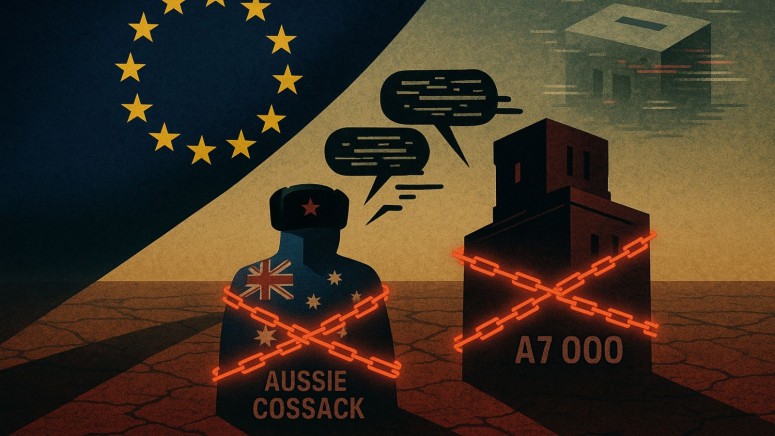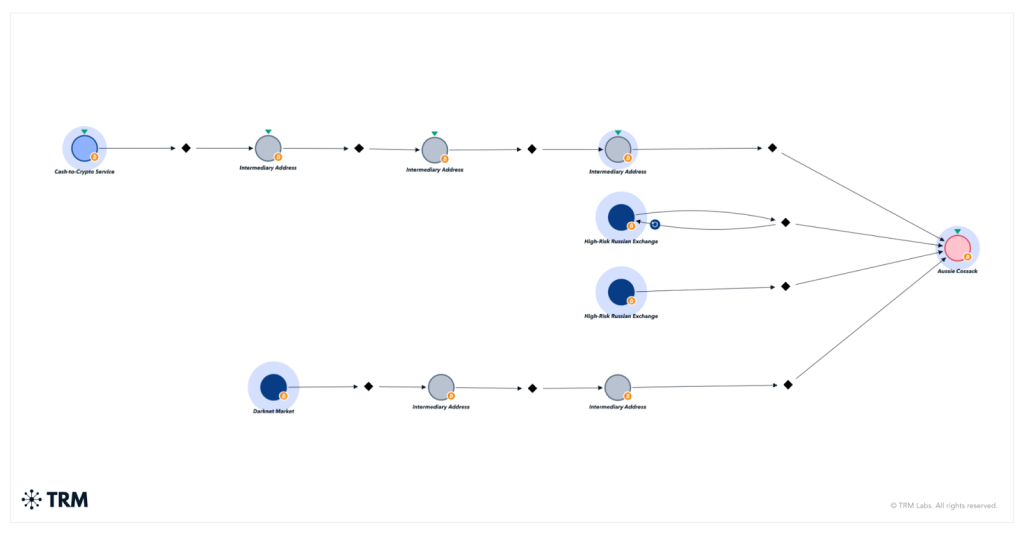
EU Sanctions ‘Aussie Cossack’ and A7 for Election Interference and Disinformation
- An Australian-Russian national, Simeon Boikov, was sanctioned for disseminating false information on critical topics.
- The individual spread misinformation targeting the 2024 U.S. elections, the COVID-19 pandemic, and the Russian invasion of Ukraine.
- Russian company A7 OOO was also sanctioned in Europe for election interference within the Republic of Moldova.
The European Union (EU) has imposed sanctions on Simeon Boikov, known as "Aussie Cossack," and Russian company A7 OOO, citing their roles in undermining democratic processes through election interference and disinformation campaigns.
These actions highlight the EU’s commitment to countering hybrid threats that destabilize democracy and security within the EU and its partner nations. Blockchain intelligence platform TRM Labs provided insight into the matter.
Spread of Disinformation and Influence
Simeon Boikov has been identified as a key figure propagating pro-Kremlin narratives. These narratives include distorted information about the COVID-19 pandemic and the Russian invasion of Ukraine.
Boikov’s actions extended beyond Europe, as investigations revealed his involvement in disseminating disinformation surrounding the 2024 U.S. presidential election.
This included funding and circulating a fabricated video, dubbed "Storm-1516," which falsely claimed voter fraud in Georgia.
Boikov’s influence operations leveraged both conventional and digital platforms, with financial support derived from cryptocurrency donations and darknet-linked cash-to-crypto services.
Simultaneously, A7 OOO has been implicated in election interference within the Republic of Moldova. According to the EU, the organization funneled money to voters, coercing outcomes in both the Moldovan presidential elections and a referendum on EU accession.
Established by Moldovan oligarch Ilan Shor, who is also subject to EU sanctions, A7 OOO allegedly facilitated cross-border financial flows to destabilize Moldova’s democratic processes.
Financial Tactics of Sanctioned Entities
Both Boikov and A7 OOO employed sophisticated financial mechanisms to support their activities. Boikov’s financial operations included high-risk platforms such as no-KYC Russian exchanges and intermediary cryptocurrency wallets to evade detection.
Similarly, A7 OOO utilized ruble-backed stablecoins and layered financial structures to conceal illicit transactions.
These tactics not only funded disinformation campaigns but also demonstrated advanced strategies for circumventing international financial sanctions.
Implications for Cybersecurity and Democracy
The targeted sanctions aim to disrupt both funding flows and the ecosystems enabling election tampering and disinformation. By sanctioning both individuals and organizations like Boikov and A7 OOO, the EU sends a clear message about its resolve to protect democracy and counter hybrid threats.
Enhanced vigilance over digital assets and continued investment in cyber-resilience are critical to mitigating these risks in the evolving geopolitical landscape.
Also read: Iranian-Backed APT42 Intensifies Phishing in Israel and Targets Both U.S. Presidential Campaigns









